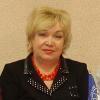Reference
- Moiseev N. N. System «Teacher» and the current environmental situation. Ekologiya i zhizn' [Ecology and life]. 2010. No. 2. P. 4–7 (In Russ.)
- Dzyatkovskaya E. N., Zahlebnyj A. N. The problem of continuity of ecological culture of society and personality Nepreryvnoe obrazovanie: XXI vek [Lifelong education: The 21st century]. 2022. Is. 4 (40). DOI: 10.15393/j5.art.2022.8007 (In Russ.)
- Mamedov N. M., Vinokurova N. F., Demidova N. N. The phenomenon of culture of sustainable development in education of the XXI century [Electronic resource]. Vestnik Mininskogo universiteta [Vestnik of Minin University]. 2015. No. 2. Electron. dan. URL: https://www.minin-vestnik.ru/jour/article/view/38/39 (date of acсess 20.04.2024).
- Glazachev S. N. Ecological culture of the teacher. Moscow, 1998. 500 p. (In Russ.)
- Stepanov S. A. The main methodological and substantive aspects of environmental education for sustainable development in higher education. Moscow, 2010. 246 p. (In Russ.)
- Vinokurova N. F., Nikolina V. V., Efimova O. E. Methodological foundations of the formation of ecological culture of schoolchildren based on the ideas of eco-development. Obrazovanie i nauka [Education and Science]. 2016. No. 5. P. 25–40. DOI: 10.17853/1994-5639-2016-5-25-40 (date of acсess 03.04.2024). (In Russ.)
- Panov V. I. Ecopsychological approach to the development of the psyche: stages, prerequisites, constructs. Teoreticheskaya i eksperimental'naya psihologiya [Theoretical and experimental psychology]. 2022. Vol. 15. No. 3. P. 100–117. (In Russ.).
- Fiofanova O. A. Psychology of growing up and educational practices of a new generation: a textbook. Moscow, 2012. 120 p. (In Russ.)
- Mukhina M. S. The concept of the phenomenon of personality [Electronic resource] Electron dan. URL: http://www.vfly.ru/koncepcia_fenomena_lichnosti.htm (date of acсess 03.04.2024). (In Russ.)
- Vinokurova N. F. Cultural-ecological approach in progressive geographical education. Theory and methodology of teaching geography (issues of scientific and methodological support for the regional component of general education): Materials of the interuniversity scientific and practical conference: collection of articles, Saint-Petersburg, 29–30 November, 2004. Saint-Petersburg, 2004. P. 12–15. (In Russ.)
- Uilber K. Integral psychology: Consciousness, Spirit, Psychology, Therapy. Moscow, 2004. 412 p. (In Russ.).
- Grigor'ev D. V. The event of upbringing and upbringing as an event. Pravo i obrazovanie [Law and education]. 2007. No. 1. P. 90–99. (In Russ)
- Vinokurova N. F., Loshchilova A. A. Methodology and technology of landscape education of future teachers based on cultural heritage. Nepreryvnoe obrazovanie: XXI vek [Lifelong education: The 21st century]. 2023. No. 2 (42). P. 2–19. DOI: 10.15393/j5.art.2023.8464. (In Russ.)
- Nikolina V. V., Loshchilova A. A., Frolova S. V., Aksenov S. I. Formation of civic identity and cultural and historical memory of the youth of Russia in the territories of new subjects of the Russian Federation: approaches, principles and directions of implementation. Vestnik Mininskogo universiteta [Vestnik of Minin University]. 2023. Vol. 11. No. 4 (45). DOI: 10.26795/2307-1281-2023-11-4-6 (In Russ.)
- Bukatov V. M. Dramogermeneutics: basic principles, methodological guidelines and educational practice. Estetika i germenevtika: Sbornik k 60-letiyu kafedry estetiki MGU: sbornik statej vserossijskoj nauchnoj konferencii, Moskva, 11 dekabrya 2020 goda [Aesthetics and Hermeneutics: Collection for the 60th anniversary of the Department of Aesthetics of Moscow State University: collection of articles of the All-Russian Scientific Conference, Moscow, December 11, 2020]. Moscow, 2022. P. 107–112. DOI: 10.29003/m2557.978-5-317-06726-7/107-112 (In Russ.)
- Troickij Yu. L., Tyupa V. I. School of understanding ‒ communicative didactics / Educational systems of modern Russia. Moscow, 2010. P. 236–242. (In Russ.).
- Kamerilova G. S., Astashin A. E., Astashina N. I. Landscape-ecological approach to the organization of research activities of students at the university. Vestnik Mininskogo universiteta [Vestnik of Minin University]. 2023. Vol. 11. No. 2. DOI: 10.26795/2307-1281-2023-11-2-3 (In Russ.)
- Vinokurova N. F., Loshchilova A. A. Methods of educating environmental responsibility among students of grades 5‒7 in non-formal education. Problemy sovremennogo pedagogicheskogo obrazovaniya [Problems of modern pedagogical education]. 2018. No. 61-1. P. 149–153. (In Russ.)
- Babakova T. A. Ecological and local history approach in the implementation of education for sustainable development in a comprehensive school. Nepreryvnoe obrazovanie: XXI vek [Lifelong education: The 21st century]. 2018. No. 2 (22). DOI: 10.15393/j5.art.2018.3966 (In Russ.)
- Alekseev S. V. Education and enlightenment: two facets of a single process (on the example of the formation of ecological culture. Nepreryvnoe obrazovanie: XXI vek [Lifelong education: The 21st century]. 2018. No. 2 (22). P. 2–15. DOI: 10.15393/j5.art.2018.3944 (In Russ.)
- Osmolovskaya I. M. Innovative educational practices in the educational space of the school Otechestvennaya i zarubezhnaya pedagogika. [Domestic and foreign pedagogy]. 2018. Vol. 1. No. 3 (50). P. 120–131. (In Russ.)













